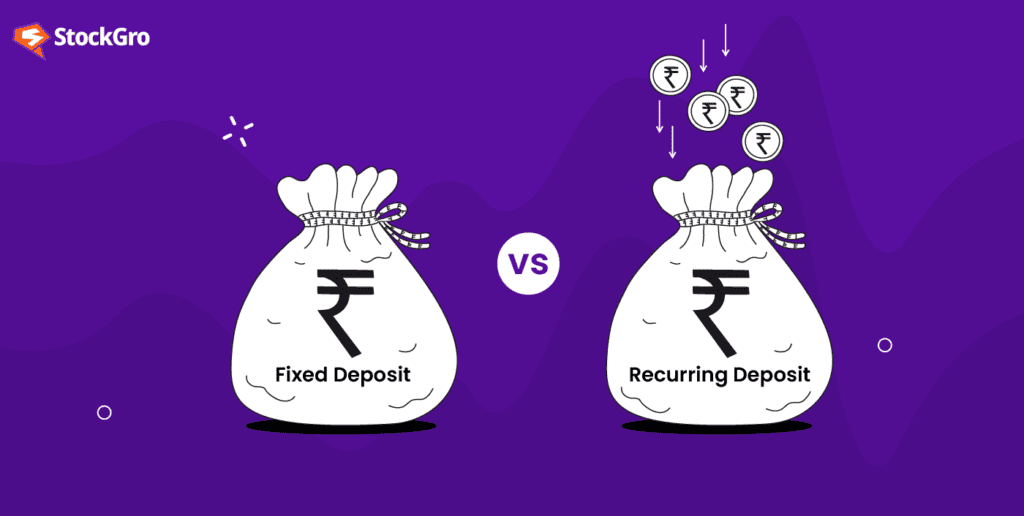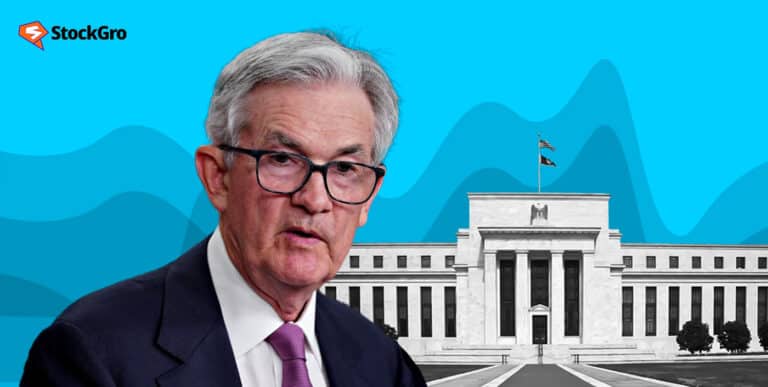
You are not alone if you are confused between recurring and fixed deposits. With similar benefits and features such as capital security, steady returns and popularity as a vehicle of saving, you might be wondering about the differences between RD and FD. Granted that both options are products of fixed income. But there are certain differences between them which you should know. So let’s dive into that!
What is FD or fixed deposit?
Justifying the name, a fixed deposit makes for an option for investment. Here, the rate of interest, as well as its time of investment, is fixed. Through FD, you can make investments on a one-time basis.
The tenure can be anything from a few days to about ten years. You get the amount of principal on maturity. However, you can receive the interest on the deposit during maturity or at a pre-decided time interval.
You may also like: The concept of EPF – All you need to know about this tax-saving fund
What is RD or recurring deposit?
Just like FD, it is a time-bound investment. But here, you can invest a fixed sum of money every month. You can open FD both in financial institutions and in banks. The rate of interest for recurring deposits also remains fixed throughout the tenure.
The tenure of Rd can be anywhere from 6 months to 10 years. However, once the amount matures, you must receive the principal and interest together.
In what ways FD and RD are similar?
When it comes to fixed deposits vs recurring deposits, there are some common features of both options. Here’s a quick check.
- Investment for Fixed Income: The rate of interest in both options remains decided before investment. This means that even if there is a market fluctuation, the rate of interest would have no effect upon maturity.
- Knowing the Returns: both FD and RD are low-risk investment options that help you plan your financial goals in advance. You will receive the amount on the basis of the guaranteed rate of interest, tenure and amount.
With an RD calculator, calculate what you need to save for your needs, such as an international trip, home renovation, child’s education, or marriage, your RD or FD can cover it all. - Premature Money Withdrawal: both options allow you to withdraw money on a premature basis. However, different banks have different withdrawal policies. For example, a certain Indian Bank allows you to withdraw no more than 25% of the principal amount. Withdrawing an amount bigger than that might attract a premature penalty.
- Loan against Deposit: you can have loans both against your fixed deposit and recurring deposit.
Also Read: At what age can you invest in stocks?
What are the facilities that you can get through both options?
Both Fixed Deposit and Recurring Deposit schemes offer some exclusive facilities that beneficiaries find helpful. For example:
- Mode of Account Operation: you can open both RD and FD online or by paying a physical visit to your nearby bank. Although it is not mandatory, you might consider a nominee for the deposit or, even better, make it a joint account with a family member.
- A gift in The Form of Investment: you can open FDs and RDs in the name of anyone you want, including your spouse, children, parents, and other relatives. Both of these investment options can double up as excellent gifts.
For example, an FD, as a form of birthday gift for a young child, can be a thoughtful option. The beneficiary can utilise the maturity proceeds for education or any other expenses after growing up.
Also Read: Credit history: What is it and why it matters?
How does FD differ from RD?
In certain aspects, FD and RD are different from each other. A study of FD vs RD concentrates on parameters like:
- Limit of Investment: you can deposit any amount under the RD scheme. However, your bank can fix the ceiling limit investment. For most of the banks, the minimum amount of investment is Rs 100, and it’s multiples.
Even for FD, the investment policies depend on the bank. However, most of the banks set a minimum investment limit of Rs 1000 and a maximum limit of Rs 15 lakhs .
- Rate of Return: the rate of interest for FD is relatively higher than that of RDs. It depends on the tenure of the deposit and the amount invested. However, in both options, senior citizens enjoy a relatively high rate of interest.
- Tax Benefits: under the provision of section 80C of the Income Tax Act 1961, fixed deposits are exempted from tax. However, the exception is valid when you earn no more than Rs 10,000 as interest.
- Income tax saving is also available when you lock in the amount for a longer period, such as five years or so. In the same way, any investment in RD does not incur tax up to a certain amount of interest.
- Credit Cards: many banks offer credit cards to their clients who keep their FDs with them. This also helps to increase the credit score of the bank. But such a provision is not available to those who open RDs.
- Loans: many banks offer loans, amounting to about 70% -90% of the deposited amount to those who open FD. This comes in handy in emergency situations. However, such amenities are not available to RD account holders.
FD vs RD, which one should you choose?
Both options have their share of benefits. There might be no significant difference in the amount of receivable interest in both options.
Yet, if you don’t have a lump sum amount to invest, then the RD could be your go-to solution. RD also suits those taking tiny steps in the world of investment. Both RD and FD are ideal low-risk investment options.

